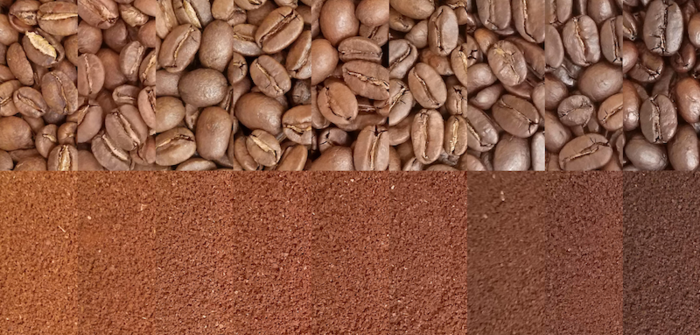
One of the challenges in adding features to CRUCS is just figuring out where the necessary controls should go and how they should be labeled. I'm trying my best, but I think it'll probably be useful to throw together a series of video tutorials showing step by step how to do some of the stuff that you can do with this.
Typica, at least, provides limited access to this kind of analysis live at the roaster, which is extremely nice to have and offers a solid boost to batch to batch consistency (more for less experienced roasters, less for more experienced roasters, but even for the more experienced it lowers the stress and still makes things easier). But the less restricted form is still incredibly useful in QC after roasting and everything I've seen out there is just plain less powerful and harder to use.
This is something that I've been effectively using to understand the connection between roasting technique and cup characteristics since back when I was logging everything on paper and it's long been a source of disappointment that digital tools have not made this more accessible, sometimes opting for significantly less useful visualizations.
Ended up ordering a new furnace. The old one was about 26 years old so I couldn't really see limping it along, plus the new one will be considerably more energy efficient.
That said, any coffee roasters out there looking to support free useful tools, I wrote https://crucs.net/ for designing coffee roasting plans and am working on adding some neat analysis stuff. There's a support link available to toss some money at me if you think this is useful and want to see more like that.
Waiting for the furnace repair person again. Yesterday's repair took it from not working at all to it worked until I went to sleep last night but then this morning the house was cold again and it's working intermittently for a few minutes every few hours so hopefully it can get fixed for real this time.
This is really amazing. "Quoting" games, a technique for creating a minimal playable snippet of a game separate from the entire game.
The difference is that the old code was using something considerably more heavyweight to start with that has a lot of capabilities that aren't needed for this feature. My excuse is that this was already there and needed for other things and hundreds of microseconds is still plenty fast enough for this, whereas the new code does a lot less and it was a few hundred SLoC that I had to write, though I did encapsulate that such that it's almost exactly the same code at the call site.
Finished integrating the new evaluator for mathable fields in Typica 2 and did some performance testing. Despite the utter garbage quality of my code with considerable room for performance optimizations when I'm in a better head space for that, it's producing results that are always correct in 10s of microseconds where the old code was producing results that were only almost always correct in hundreds of microseconds.
- Software
- https://typica.us
- Send Money
- https://typica.us/payment.html
Author of Typica software for coffee roasters.
